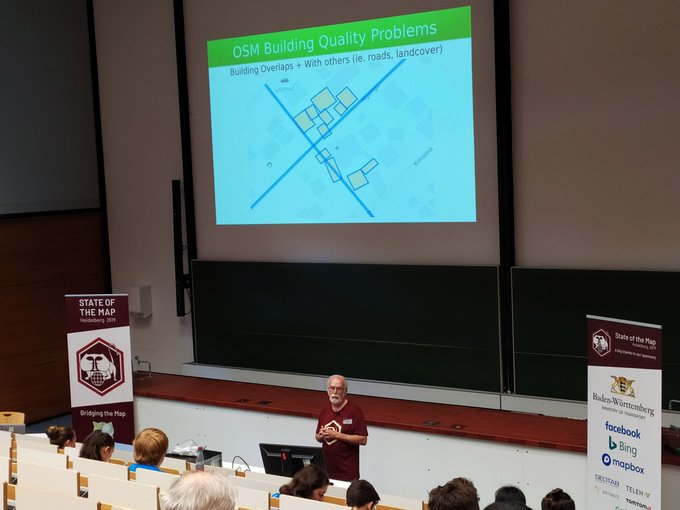Since 2010, the OSM contributors and developpers, we succeeded to make OpenStreetMap the De-facto Map for humanitarian responses and develop collaborations with UN agencies and NGO, and innovate to use various tools for the response, and even work with epidemiologists in difficult contexts like the Ebola outbreak in West Africa or doctors walking in remote villages of Nepal after the major earthquake in 2015.
The major OSM Responses I coordinated from 2012 offered me the opportunity to travel from Canada to various Conferences and present our results. But like many other volunteers, I have less opportunity to travel and participate to conferences from abroad. The SOTM-2019 in Heidelberg was my first participation to the international SOTM and I am very gratefull to the OSM Foundation which selected me for a scholarship.
At my arrival in Heidelberg, the Guesthouse where the scholars and many other particpants stayed was a great opportunity to exchange with colleagues from various countries and meet colleagues from previous missions in Africa and Haiti that I did not see for a long time. Quite a pleasure also to discuss with Manfred A. Reuter and the enthousiast @euYoutH_OSM Humanitarian OpenStreetMap Erasmus+ Students. They have partner schools from around Europe and offered there students the opportunity to volunteer for the 3 days of the conference. A great thanks to theses students.
With 500 participants, the floor of the conference was also a place to meet people and exchange on various subjects.
Among the various discussions, this gave me the opportunity to exchange with my WeeklyOSM colleagues 
Quite a surprise also to meet at the Conference Claire Halleux from Democratic Republic of Congo. We did coordinate together the 2012 OSM Response for North Kivu and did collaborate since last year to support the Kinshas OpenCities project and the Ebola Response. But the conference was our first opportunity to meet. The same with many other colleagues that I see occasionnaly or saw for the first time.
To support the Opencities project in Kinshasa and the Ebola Response, I developped from last year the OQ_Analysis PostGIS functions to monitor the quality of Building data in OSM (See Github repository](https://github.com/pierzen/OQ_Analysis/)). I presented these result at the conference. I should publish more details later on the Opendatalab-RDC Blog.

A great thanks of the organisers and volunteers of this conference for such a great event in Heidelberg. Videos of the various conferences are already available.


Discussion